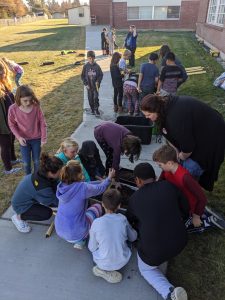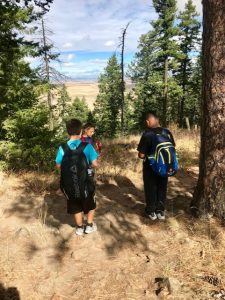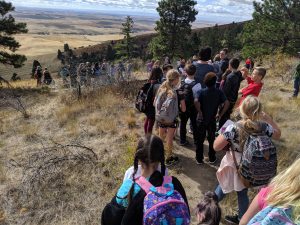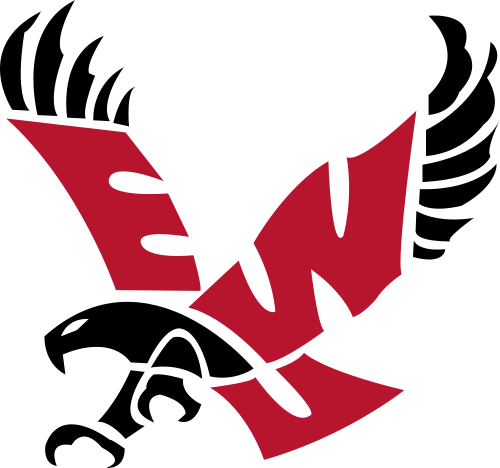Research Interests:
My research focuses on supporting K-12 science teachers and undergraduate science faculty members adopt and sustain their use of evidence-based teaching practices. We pursue this line of research through research methods including interviews to elicit instructors’ conceptions of teaching and learning, classroom observations to explore instructional practices, and surveys to measure instructors’ use of resources and resilience over time.
https://www.researchgate.net/profile/Robert-Idsardi
Research Projects:
Resources Accessed to Cultivate and Encourage Resilience (RACER)
This NSF-funded project examines the persistence and retention of newly hired secondary science teachers who were prepared at Kent State University (Kent), Eastern Washington University (EWU), and the University of Georgia (UGA). We are using the conservation of resources theory to study how teachers access the resources around them, and in what ways access to resources is related to resilience.
STEM faculty conceptions of how students learn
A wide range of factors include STEM faculty members’ use of various instructional practices. This project explores the role that knowledge of student learning plays in planning, implementing, and evaluating instruction in undergraduate STEM courses.
Idsardi, R., Luft, J. A., Wingfield, J. L., Whitt, B., Barriga, P. A., & Lang, J. D. (2023). Relationships between undergraduate instructors’ conceptions of how students learn and their instructional practices. Journal of Research in Science Teaching. https://doi.org/10.1002/tea.21853
Implementing the Flipped Classroom
Following a workshop for STEM faculty on the flipped classroom approach, this project is studying the various ways STEM faculty implement the flipped classroom and the effects these approaches have on student learning compared to previous iterations using traditional lecture.
Idsardi, R., Friedly, I., Mancinelli, J., Usai, N., & Matos, L. F. (2023). Outcomes of Early Adopters Implementing the Flipped Classroom Approach in Undergraduate STEM Courses. Journal of Science Education and Technology, 1-16. https://doi.org/10.1007/s10956-023-10066-9
Modifying Scientific Research into K-16 Classroom Activities
Project includes developing classroom activities for both K-12 and undergraduate biology classes that support students in learning both core concepts in biology and science practices. Of particular interest is ensuring all students have opportunities to engage in authentic science experiences embedded in undergraduate coursework.
Idsardi, R., Hahn, D.A., Bokor, J.R., & Luft, J.A. (2019). Modifying Scientific Research into Introductory Science Course Lessons Using a 5E Lesson Format: An Active Learning Approach. Journal of Research in College Science Teaching. https://www.jstor.org/stable/26901311
Palouse Prairie Restoration and Education Project
In collaboration with local elementary and middle schools, this Washington State Recreation and Conservation Office-funded project aims to develop students’ understandings of and appreciation for native ecosystems through hands-on outdoor activities. The program teaches students about local, native Palouse prairie habitats, through field trips to native prairie remnants and restoration activities. Students grow native prairie plants at their schools, and will transfer them to EWU’s 120-acre Palouse Prairie Restoration site. More information on EWU’s restoration site can be found here: https://www.ewu.edu/give/funds/prairie-restoration




Grants:
NSF-DUE: Robert Noyce Track 1 Program: 2150787 – “Expanding Collaborations That Recruit, Prepare, and Retain Diverse and Highly-Qualified STEM Teachers in Eastern Washington”. $1,450,000. PI: Ashley Lamm, Co-PIs: Carlos Castillo-Garsow, Robert Idsardi, and Gustave Nollmeyer. 2022-2027.
NSF-DUE: Robert Noyce Track 4 Program: 2050145 – “Resources Accessed to Cultivate and Enhance Resilience (RACER)”. $1,000,000. PI: Shannon Navy, Co-PIs: Lisa Borgerding, Robert Idsardi, and Julie Luft. 2021-2025.
US Dept of Education Graduate Assistance in Areas of National Need (GAANN) Program: P200A210129 – “Enhancing Opportunities for Research and Teaching in Biology”. $617,068. PI: Paul Spruell, Co-PIs: Robert Idsardi, Camille McNeely, Robin O’Quinn and Jenifer Walke. 2021-2024.
Washington State Parks and Recreation Commission No Child Left Inside (NCLI) Program: 19-1063 – “Palouse Prairie Restoration and Education Program”. $24,982.00. PI: Robert Idsardi, Co-PIs Justin Bastow, Rebecca Brown, Robin O’Quinn, Rebecca Hansen, and Lauren Idsardi. 2019-2021.
Other Selected Research Products:
Luft, J.A., Jeong, S., Idsardi, R.C., & Gardner, G. (2022). Literature reviews, theoretical frameworks, and conceptual frameworks: An introduction for new biology education researchers to assist in making sense of these elements. CBE—Life Sciences Education, 21(3), rm33. https://doi.org/10.1187/cbe.21-05-0134
Idsardi, R (2020). Evidence-Based Practices in the Active Learning Classroom. In Mintzes, J. & Walter, E. (Ed.), Active Learning in College Science: The Case for Evidence-Based Practice. Springer Nature. https://doi.org/10.1007/978-3-030-33600-4_2
Luft, J.A., & Idsardi, R. (2018). Building a Foundation for 3D Instruction through Bridging Practices in the Secondary Methods Classroom. In Rhoton, J (Ed.), Preparing Teachers for Three-Dimensional Instruction. Arlington, VA: NSTA Press
Prospective Students:
There are opportunities for undergraduate and master’s students interested in biology/science education to participate in on-going research and design independent projects. If you are interested please contact me by email to learn more about current education research opportunities.


